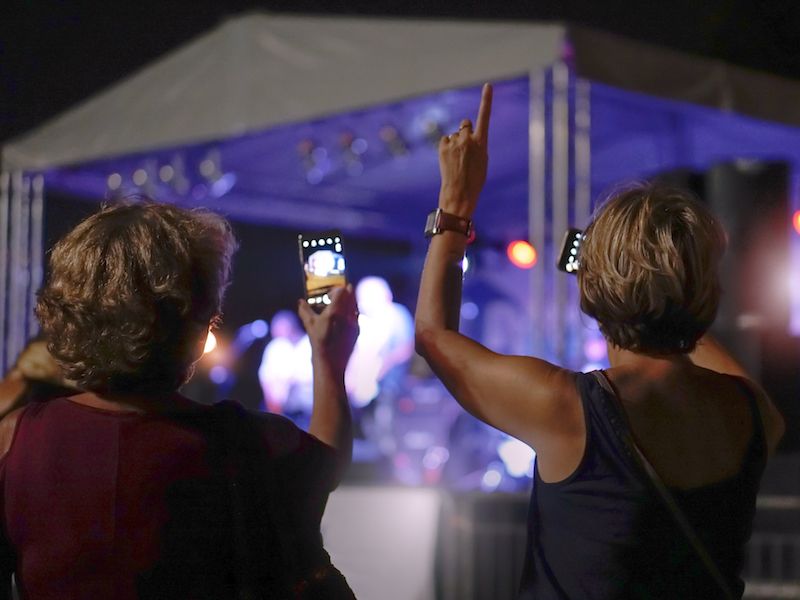
Summer has finally arrived, and you’re ready for all those things we’ve been looking forward to: trips to the beach, chilling out by the swimming pool, and damaged hearing? That’s right, summer holds a few hidden hazards to your ears, either from loud noises or the external scenarios you could find yourself in. Any sounds over 80 decibels can lead to harm to your hearing, while swimming in pools or other bodies of water can bring about lasting hearing loss. To keep your hearing safe and sound this summer, you need to be mindful of your environment and take preventative measures. Here are 6 of the summer’s hidden hearing hazards.
Use Ear Protection at Concerts
The summer season is concert time, but even if attend an outdoor arena, you still need to take care of your hearing. 90 decibels is inside the danger zone for hearing damage and live music reaches this volume even when you’re at outdoor venues. So whether you’re attending an outside or inside concerts, it’s a practical plan to use earplugs. You can still hear the tunes with earplugs it’s just dampened a little bit. If you’re going to a show with young kids, consider buying them a heavy duty set of earmuffs since their ears are much more vulnerable than those of adults.
It’s Not Just Loud at Fireworks
Honestly, there are a lot of reasons to avoid fireworks in the summer. We’re not talking about the specialized 4th of July displays, we mean the backyard fireworks which every summertime cause many of incidents. On top of causing hand traumas, loss of vision, and home fires, personal fireworks can also result in serious damage to your hearing since they’re known to get to decibel levels of 155. This 4th of July, leave the fireworks to the pros and enjoy the display from a protected and sound distance.
Mowers Can Cause Hearing Loss
If you’re really serious about your lawn, chances are you’re out there each week on your lawnmower, using your edger, and trimming your bushes. But have you ever noted how off your ears feel after you get done, how everything sounds muffled or your ears are ringing? That’s because the lawn tools, which are constantly loud, have a slow and steady impact on your hearing. You’ve probably noticed landscapers wearing some type of hearing protection, you should take a hint from them and use earmuffs or earplugs next time you take care of your lawn to make sure your hearing doesn’t get injured.
Hears How to Safeguard Your Hearing When You Take a Swim
Millions of people suffer from swimmer’s ear every summer, which occurs when bacteria-laden water gets trapped in your ear canal. The bacteria will then infect the ear, producing painful earaches and swelling. It’s not only lakes and rivers that have these bacteria, they can also be found in pools and hot tubs if they are not cleaned and treated thoroughly. No irreversible injury should take place if you get your hearing checked out by a hearing specialist. To be safe, when swimming in your pool, use special swimmers earplugs and keep the chemical balance precise to lessen the possibility of getting swimmers ear.
Boats and Other Water Sports
Summertime is a taste of freedom for those individuals who love to be in a boat on the water, smelling the fresh lake breeze or the salty air of the ocean. But, jet ski and boat engines can be noisy,we’re talking more than 100 decibels. Continual subjection to that much noise for around 15 minutes can cause lasting hearing damage. Once again, it’s probably a smart decision to use a couple of disposable, foam earplugs when you’re out on the water to make certain you don’t accidentally damage your ears.
Car Races Can Injure Your Hearing
It doesn’t matter what kind of auto racing you love, motorcycle, midget, Formula 1, drag racing or stock cars. All of them can present a huge challenge for your hearing if you attend race after race during the summer. It’s estimated that volume levels can go over 120 decibels at certain races, which is absolutely in the danger zone for hearing impairment. As pointed out earlier, your kids should wear muffs whereas you should use earplugs at the very least. Otherwise, you may not be able to enjoy the sound of those engines as you get older.
